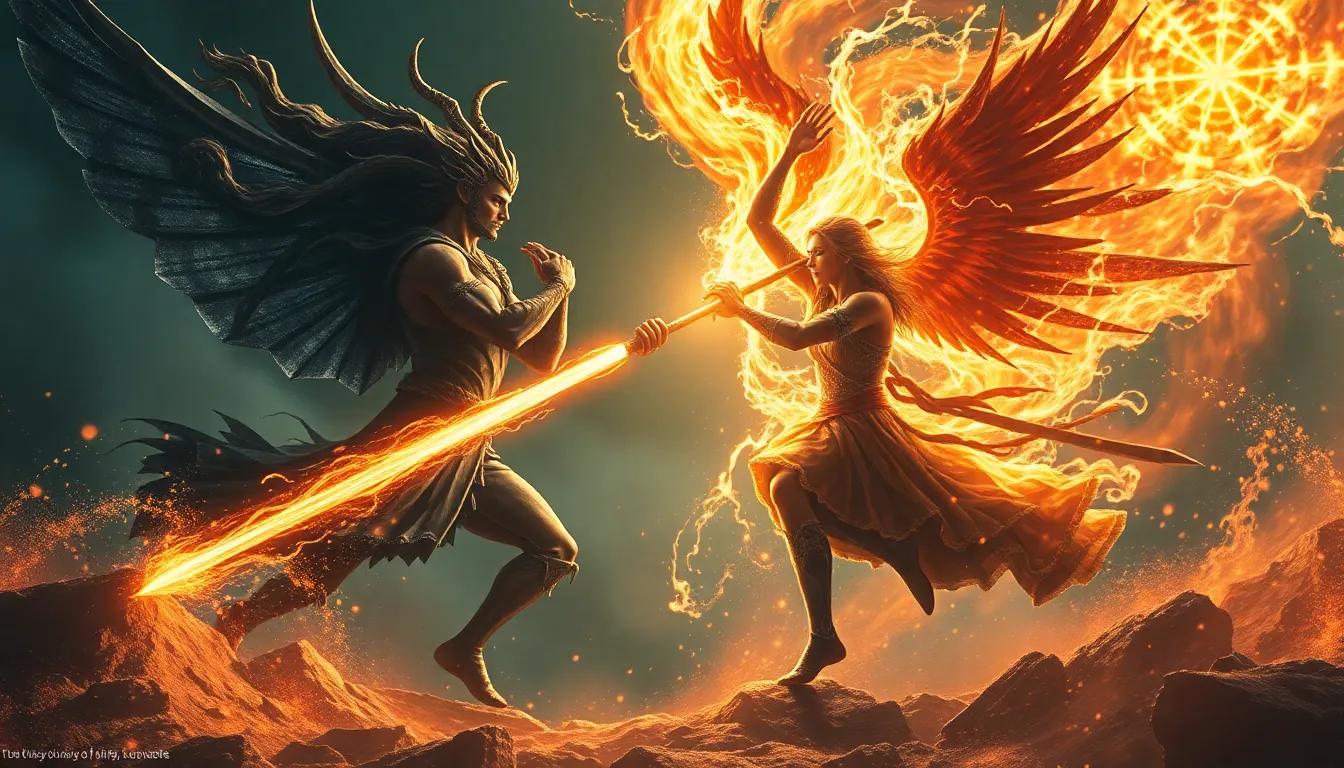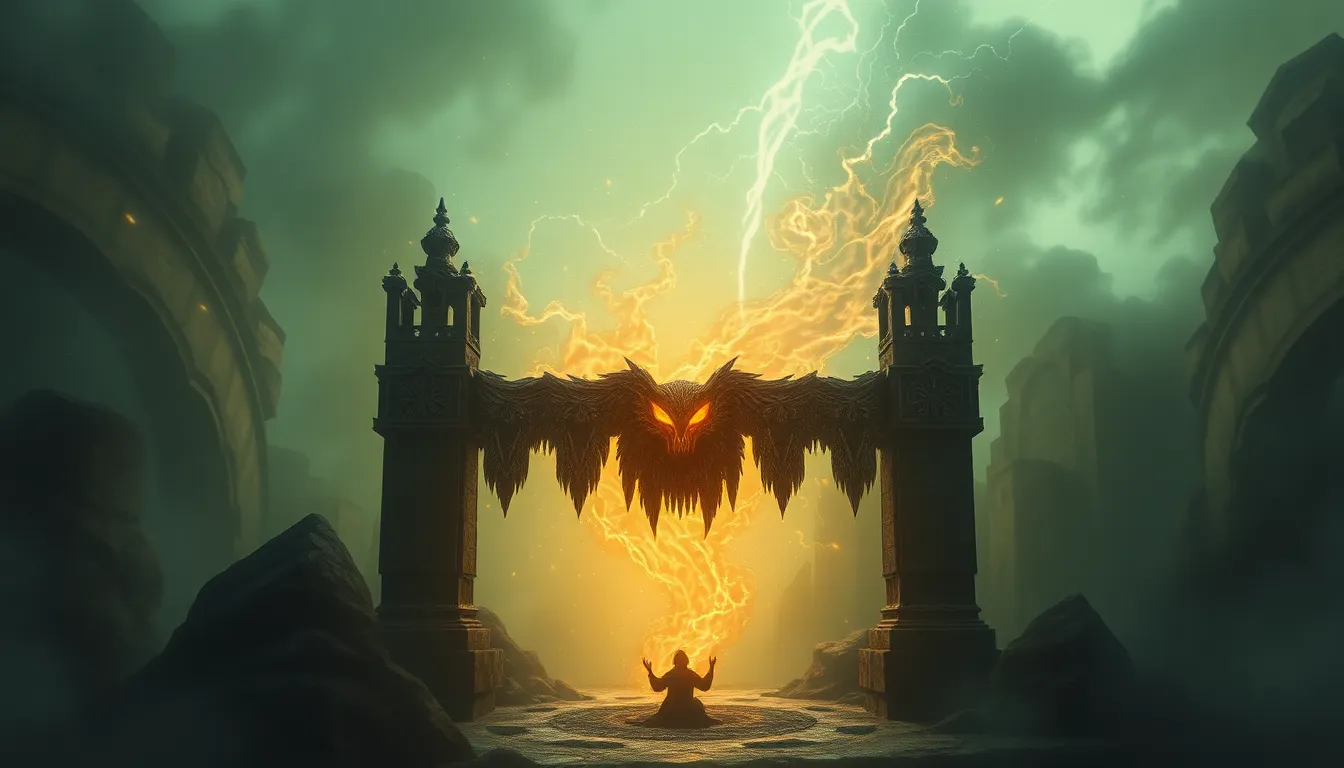The Divine Duel: The Most Legendary Battles in History
I. Introduction
Throughout history, legendary battles have served as a pivotal backdrop against which the narratives of civilizations unfold. These epic confrontations are often infused with elements of myth and divine intervention, shaping not only the outcomes of wars but also the cultural and spiritual psyche of nations. This article delves into some of the most significant battles that exemplify the intertwining of divine influence and human conflict, exploring how these legendary duels have left an indelible mark on history.
II. The Concept of Divine Intervention in Warfare
In many ancient cultures, warfare was not just a matter of strategy and strength; it was often seen as a reflection of divine will. The belief that gods could intervene in human affairs provided soldiers with a sense of purpose and moral justification for their actions.
- Historical context of divine belief: From the Sumerians to the Greeks, deities were often called upon for support in battle. Soldiers would pray for victory and offer sacrifices to gain favor.
- Examples of gods influencing battles:
- In ancient Greece, Athena was revered as a protector of cities and warriors.
- In Norse mythology, Odin was believed to select those who would die in battle and those who would live.
- Psychological impact: The belief in divine intervention helped bolster morale among troops, instilling courage in the face of overwhelming odds.
III. The Battle of Troy: Myth Meets Reality
The Trojan War, although steeped in myth, is a foundational story in Western literature that illustrates the interplay between human ambition and divine will.
- Overview of the Trojan War: Lasting ten years, this legendary conflict was sparked by the abduction of Helen, the wife of Menelaus, by Paris of Troy.
- Key figures:
- Achilles: The invincible warrior whose wrath changes the tide of battle.
- Hector: The noble defender of Troy, whose fateful duel with Achilles is a central theme.
- Legacy: The Trojan War has inspired countless works of art and literature, symbolizing the tragic consequences of pride and betrayal.
IV. The Battle of Marathon: A Clash of Titans
The Battle of Marathon, fought in 490 BCE, stands as a testament to the resilience of the Greek city-states against the might of Persia.
- Background and significance: The Persian Empire sought to expand its territory, but the Athenian army, though outnumbered, secured a surprising victory.
- Divine favor: The Greeks believed that the goddess Athena had granted them strength, further motivating them to fight fiercely.
- Impact: This battle not only safeguarded Greek independence but also laid the groundwork for the development of Western democracy.
V. The Battle of Hastings: Fate and Fealty
The Norman Conquest of England in 1066 is marked by the Battle of Hastings, a decisive conflict that altered the course of English history.
- Overview: William the Conqueror faced King Harold II in a battle that was steeped in claims of divine right and prophecy.
- Role of divine right: Both sides believed they had the support of God, influencing the fervor and stakes of the conflict.
- Lasting impact: The victory of the Normans led to significant changes in English governance, culture, and social structure.
VI. The Siege of Jerusalem: Faith and Ferocity
The Siege of Jerusalem during the First Crusade in 1099 showcases the fervent religious zeal that characterized medieval warfare.
- Context of the First Crusade: A call to reclaim the Holy Land, this conflict was marked by intense religious conviction.
- Influence of religious fervor: Crusaders believed they were on a divine mission, which fueled their determination and brutality.
- Aftermath: The siege had profound implications for Christian-Muslim relations, setting the stage for centuries of conflict.
VII. The Battle of Agincourt: The Power of the Underdog
The Battle of Agincourt in 1415 is often remembered for the dramatic triumph of the English forces against overwhelming odds during the Hundred Years’ War.
- Overview: King Henry V led a ragtag army against a much larger French force, relying on strategic ingenuity and the longbow.
- Invocation of divine support: Henry V famously called upon God for guidance and strength, solidifying his status as a heroic leader.
- Cultural legacy: The battle inspired Shakespeare’s play, “Henry V”, which immortalized the themes of valor and divine favor.
VIII. The Battle of Gettysburg: A Turning Point with Divine Overtones
The Battle of Gettysburg in 1863 was a pivotal moment in the American Civil War, symbolizing a struggle not just for territory, but for the soul of a nation.
- Context: This battle was a turning point that halted the Confederate invasion of the North.
- Role of faith: Many soldiers on both sides believed they were fighting for a righteous cause, invoking divine support in their struggles.
- Impact: The battle had profound implications for American identity, reinforcing the idea of a nation under God.
IX. Modern Battles and the Myth of the Divine Duel
As warfare has evolved, so too have the narratives surrounding divine intervention in battles.
- Evolution of divine narratives: In World Wars I and II, soldiers often invoked divine support, viewing their struggles as part of a larger moral battle.
- Case studies:
- World War I saw many soldiers expressing their faith in letters home, believing they were fighting for a just cause.
- In World War II, the Allies framed their struggle against tyranny as a fight between good and evil.
- Contemporary reinterpretations: Modern conflicts continue to draw on historical narratives of divine support, often justifying military actions through a sense of moral righteousness.
X. Conclusion
The legendary battles explored in this article illustrate the complex relationship between faith, myth, and human conflict. From the ancient world to modern times, the belief in divine intervention has shaped the motivations of soldiers and the outcomes of wars. These epic confrontations serve as enduring reminders of how deeply intertwined our spiritual convictions are with our historical narratives, leaving a legacy that continues to influence our understanding of courage, sacrifice, and the human spirit.



